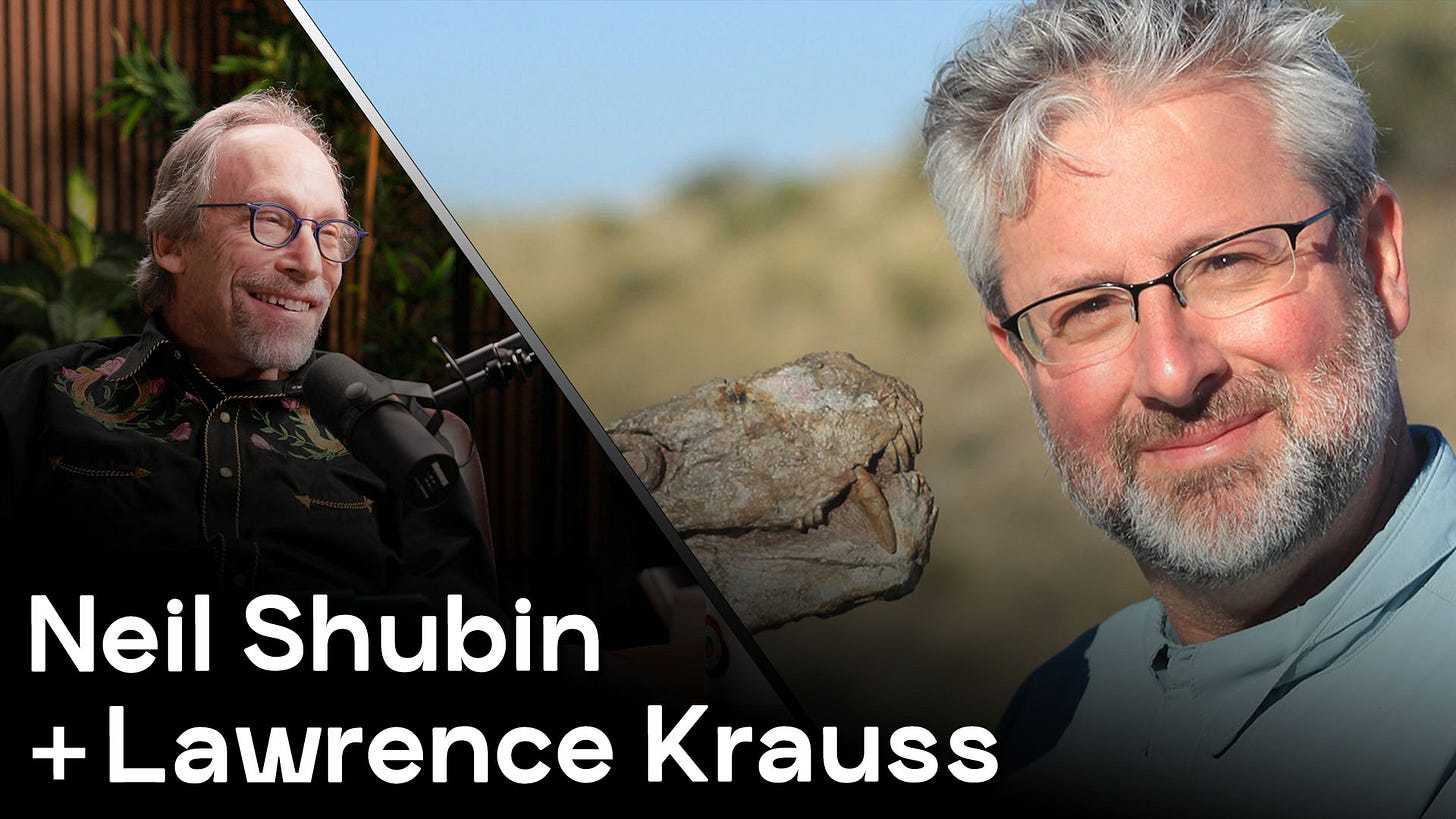(Ad-free Video) Neil Shubin: Science, Exploration, Patience, and Survival at the Ends of the Earth
Doing science in some of the most extreme environments on the planet, and about the life and career of a scientist who discovered one of the most important missing links in biology.
One of the best parts of hosting the Origins podcast is talking with remarkable scientists whose ideas have changed the way we understand ourselves and our world. My recent conversation with Neil Shubin was particularly enjoyable, not only because Neil is a friend whose insights I admire, but because our dialogue ranged across some of the most fascinating questions at the intersection of evolution, exploration, and human curiosity.
Neil became widely known for discovering Tiktaalik, the fossil fish whose fins contain bones remarkably similar to the limbs of land animals, including us. He is currently the Robert R. Bensley Distinguished Service Professor of Organismal Biology and Anatomy at the University of Chicago and the bestselling author of Your Inner Fish and, most recently, The Ends of the Earth. But beyond his credentials, Neil embodies the careful, patient, and humble approach to discovery that value in science.
Our discussion began with the unexpected paths scientists take, including Neil's own formative experiences. He described how museum visits and planetarium shows ignited his childhood fascination, and we talked about how a single course on vertebrate evolution at Harvard redirected his career from veterinary medicine to fossil hunting. Neil recounted, and we discussed at length, the meticulous thought and considerable risk that led him and his colleague, Ted Daeschler, to choose the Canadian Arctic for their famous expedition. It took six summers of tough fieldwork before their gamble yielded Tiktaalik, transforming our understanding of how life transitioned from water to land.
But our conversation wasn't just about past discoveries. Neil and I explored broader themes about the nature of science itself: how hypotheses are formed, the patience and courage it takes to test bold ideas, and the critical importance of embracing failure. We agreed that stepping outside one's comfort zone is almost always necessary to achieve scientific breakthroughs, and Neil shared how his own career exemplifies precisely that.
This kind of deeper dialogue, going beyond the headlines to explore the very human stories behind scientific discoveries, is one of the reasons I started the Origins podcast. I hope you find this conversation with Neil Shubin as enjoyable and thought-provoking as I did.
As always, this ad-free video is available to paid subscribers only. Your subscriptions support the non-profit Origins Project Foundation, which produces the podcast. The audio version is available free on the Critical Mass site and on all podcast sites, and the video version will be available on the Origins Project YouTube channel as well.
Keep reading with a 7-day free trial
Subscribe to Critical Mass to keep reading this post and get 7 days of free access to the full post archives.




